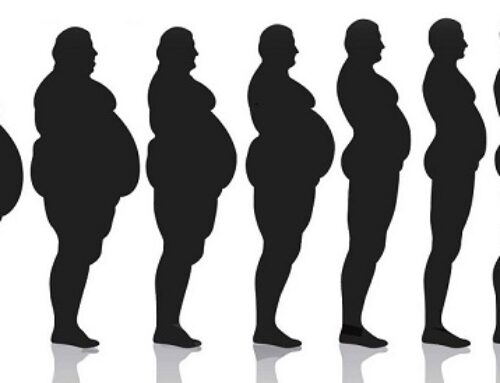When people find out I am a Nutritional Therapy Practitioner, they often ask me why they cannot seem to lose weight. They are doing all the right things, they think, but the weight is not coming off! When I start asking questions, it often becomes clear that diet and lifestyle are the major culprits.
Here are three important reasons why weight struggles continue for so many people:
1. Blood sugar plays a crucial role in our ability to lose weight. People with blood sugar dysfunction, often due to overconsumption of carbohydrates, can find it difficult to manage their sugar cravings. When we consume foods high in sugar, our blood sugar spikes and the pancreas is called upon to release insulin. Insulin will quickly move sugar into the cells, causing blood sugar to drop. This becomes a problem when the blood sugar drops too low, or too quickly. Low blood sugar is a dangerous state and our body’s innate wisdom will drive us to grab some food to quickly raise it back up; usually sugar or some type of high carbohydrate snack. This is an accepted habit due to the constant repeating need to raise blood sugar that has dropped too low. I often see people carrying sports bars in their purses or backpacks for this purpose. The misconception is that these bars are a good, healthy, snack option but in reality, they can be as high in sugar as a Snickers bar.
This pattern can lead to chronically elevated blood sugar or insulin resistance. High insulin levels cause your body to turn sugar into fat, and this fat is quickly moved into your cells for storage. As long as insulin levels are high, you will store your carbohydrates as fat. Lower your insulin levels and you will start to use your fat stores as fuel. This can result in weight loss.
Eating a diet high in healthy fats, which create satisfaction and thus stop food cravings, healthy protein, lots of low carbohydrate vegetables and moderate amounts of low carbohydrate fruits like berries, is a great way to stabilize blood sugar and bring high insulin levels down.
2. Sleep issues can be devastating for the healthy function of the human body. Because sleep is such an important function on many levels and because we crave it intensely when we don’t get enough, it is hard to understand why so many of us actually create our own sleep problems. By not going to bed at a decent hour, consuming caffeinated beverages, and especially by consuming sugary foods later in the day and evening, we disrupt our natural sleep rhythms.
Lack of sleep is related to the disruption of our circadian rhythms. When we disrupt our body’s natural rhythms, our endocrine system can be thrown off. Lack of sleep can cause chronically elevated insulin levels. Remember, elevated insulin will cause you to store fuel (fat) instead of leaving it as an accessible source of energy. One study showed that sleep deprivation led to reduced insulin sensitivity and an increased propensity for Type II Diabetes (ref. AlDabal, et al). It has also been suggested that lack of sleep makes a person so fatigued that the strongest impulse is to reach for high-sugar snacks or treats in response to the body’s desperate attempt to find a way to increase energy (ref. Markwald, et al).
Resolving sleep issues and getting deep, regular, sleep can promote weight loss and help with many other health problems as well.
3. Microbes in the digestive tract play a big role in body weight. We have microbes that encourage normal weight and microbes that promote weight gain and inflammation. We have microbes that make many of the B vitamins we are so desperately in need of and assist in the process of synthesizing many others. In the gut, good gut bacteria are involved in the production of up to 95% of our serotonin, the neurotransmitter that promotes positive feelings and thoughts.
The relationship between certain bacteria in the gut and obesity should not be overlooked. In a recent study a microbe called Enterobacter, which produces an endotoxin, was found to make up about 35% of a morbidly obese patient’s gut microbiome (ref. Fei, et al). When some of this bacterium was taken from this patient’s gut and implanted into the sterile gut of a mouse, the mouse quickly became morbidly obese. When the patient was put on a diet rich in probiotics (healthy bacteria) and healthy foods, he lost 113 pounds in about seven months and when they evaluated his gut bacteria after the weight loss, the Enterobacter was gone (ref. Fei, et al).
Another bacterium found in the gut is called Firmicuties. High levels of this bacterium correlate with higher body weight. In humans, loss of body weight was found to decrease the number of Firmicuties present in the gut (ref. Aziz, et al).
Consuming foods that are high in sugar do not nourish the beneficial microbes that live in our digestive tract but instead nourish and support the microbes that can take over the digestive tract and cause diseases, weight gain, and obesity.
All of this reinforces the mantra that eating a diet high in quality vegetables, fruits, healthy meats and fats and leaving out processed foods can stabilize your blood sugar, encourage better sleeping habits, and begin to remodel the health of your gut, creating an environment hospitable to the beneficial bacteria that would love to settle in and call your gut their home. Adding in homemade probiotic foods or supplementing with a quality supplemental probiotic can help recreate a healthy gut environment.
Try it out- view the low carbohydrate food list on my website and eat from the list for two weeks. See how it makes you feel. I challenge you to take control of your health and eating habits. At the very least you’ll feel better; at best you’ll lose some weight and improve your health!
Cited References:
- AlDabal L, BaHamman AS, Metabolic, endocrine and immune consequences of sleep deprivation. Open Respir Med. 2011; 5: 31-43.
- Markwald RR, Melanson EL, Smith MR, Higgins J, Perreault L, Eckel RH, Wright KP Jr. Impact of insufficient sleep on total daily energy expenditure, food intake, and weight gain. Proc Natl Acad Sci USA. 2013; 110(14): 5695-5700.
- Fei N, Zhao L. An opportunistic pathogen isolated from the gut of an obese human causes obesity in germfree mice. J ISME. 2013; (7) 880–884.
- Hyman M. 5 steps to kill hidden bad bugs in your gut that make you sick. Dr. Mark Hyman. October 2014. Accessed March, 2015.
- Aziz Q, Dore´ J, Emmanuel A, Guarner F, Quigley EMM. Gut microbiota and gastrointestinal health: Current concepts and future directions. J Neurogastroenterol and Motil. 2013; (25) 4–15.








